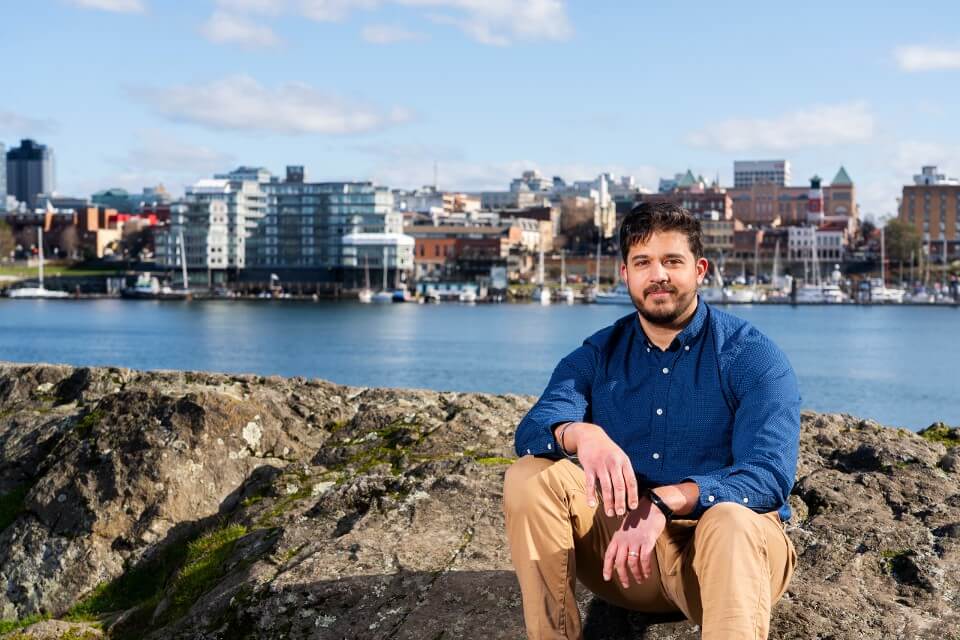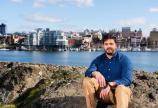No one left behind: equity in sustainable planning
- Anne MacLaurin

People are a vital component to global oceans—40 per cent of the global human population live within 100 kilometres of the coast—but how can we plan for sustainable coastal development, and what are the tradeoffs?
Gerald Singh, assistant professor in the University of Victoria’s School of Environmental Studies, examines the intersections between environmental management, development and social equity.
"Social equity is at the heart of sustainable development; all development options require a consideration of tradeoffs as they affect equity," says Singh. "If we limit fishing to protect fisheries for future generations, what does that mean for the people who rely on coastal food systems now?"
Singh also holds an Ocean Nexus Chair of Global Change and Sustainable Development—a role supported by the Nippon Foundation Ocean Nexus Center with UVic as a partner institution.
The Nippon Foundation Ocean Nexus Center is one of the largest research networks in the world focused on issues of ocean sustainability and governance. The centre works on international ocean sustainability issues, often with major partners such as UN agencies.
Singh's mission is to think about ocean conditions and development and the complexities involved in a populated space. Beyond this, Singh examines the interconnections between the United Nations Sustainable Development Goals (SDGs) to see how advancing one goal impacts another goal.
People are the priority, so my key focus is on decision-making, with an eye on equity and social justice."
—Gerald Singh
Decision-making about climate mitigation and adaption often favours those with wealth and power, explains Singh. For instance, when flooding and sea level rise impact wealthy properties, the solution to build a sea wall to offset the risk can increase the flood threat to the poorer communities next door—a process sometimes described as "threat displacement."
Promoting equity
He explains part of the issue with inequities is they are difficult to measure. In some cases, such as when projects intended to address public concerns (e.g., climate adaptation planning), the general good intention may be enough for people to ignore differential consequences to different groups and may deepen inequities. In response, Singh is developing a planning and accountability tool that promotes equity.
"I see science as a tool for better decision-making,” says Singh.
Singh says his hope is that by using this tool, marine development and conservation projects proactively work and plan with local communities who often face unintended effects of development and conservation.
"We want to measure equity consequences of a project," says Singh. "Right from planning to implementation to the outcomes, equity is part of the goal.”
Singh’s accountability tool is a framework that will help with planning and monitoring equity.
“Equity is the core value of the UN’s Sustainable Development Goals,” says Singh, "but there is a disconnect—equity is often overlooked when it comes to climate action and sustainable development proposals—perhaps because the benefits are assumed to be universal."
UVic is a catalyst driving change and meaningful impact on a global scale through strong partnerships at home and internationally. In our teaching, research and operations—and through our local, national and international partnerships—the University of Victoria proudly supports and works to advance the United Nation’s Sustainable Development Goals (SDGs). UVic’s commitment to climate, environmental change and sustainability measures up—we are second in the world among universities for climate action as ranked against the SDGs. Learn more about UVic’s 2022 ranking by the Times Higher Education Impact Rankings.

